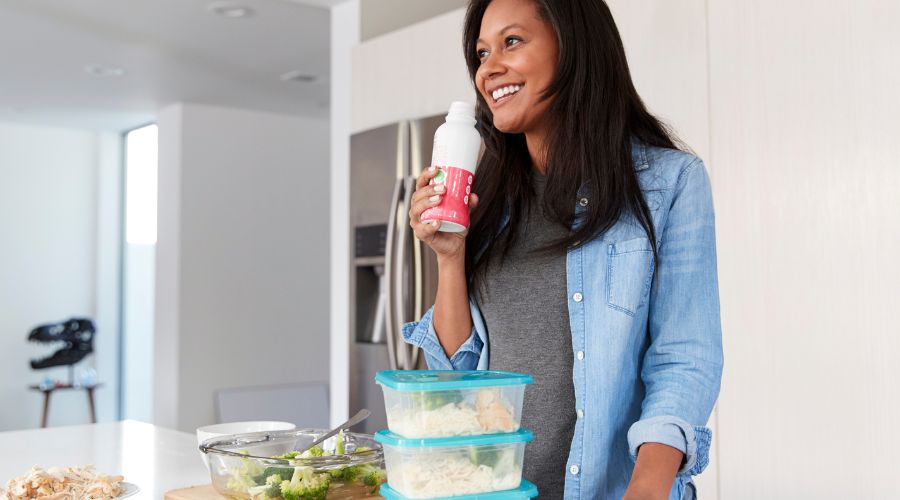We want a nice slim body. That is why we go for liposuction and invest money and time to get what we want from the procedure. Indeed, liposuction can help you shape up and get the contours you always dreamed of. However, undergoing liposuction is just the first part of the journey. Let us remind you that lipo is not a weight loss procedure that modifies your metabolism in any way. It only removes unwanted fat from the target areas. So keeping body contouring results in the long term is up to you, your commitment to following the recovery instructions, and your dietary and lifestyle choices.
If you want to maintain your shaped body in the long run, you should have a balanced diet and fuel your body with healthy food that supports your recovery after lipo and general well-being. Certain types of foods can help you get better after liposuction, but some things are best to avoid eating because your immune system and entire body get weaker after surgery.
What Should NOT I Eat After Liposuction?
In general for overall health and especially after liposuction, it is an absolute must not to consume the following beverages and food products:
- Alcohol-containing beverages like beer;
- Sweetened beverages that are loaded with refined sugar such as soda, juices, sweet teas;
- Fast food like burgers, chips, French fries, fried chicken;
- Candies and chocolates since they have lots of added sugar;
- Processed meats that have too much fat like bacon and sausages;
- Dairy products like milk and cheese;
- Cereals with high amounts of sugar in it.
As you have noticed from the list above you should avoid foods that contain too much sugar and fat. They can cause swelling to stay for longer after liposuction prolonging the recovery time.
Besides, consuming these high-sugar, high-fat products can contribute to weight gain which will destroy the stunning results you got from liposuction.
What Food Is Best After Liposuction?
Now let’s talk about the foods that can help you maintain your results keeping the toned and slimmed body you got following the liposuction. These foods can also make the recovery process faster and easier.
Here are the things you should try to eat more if you want to maintain the WOW effect of your liposuction procedure, promote overall health, and shine bright like a diamond wherever you go.
1. Abundance Of Protein
Healthy protein helps wound healing, therefore, foods rich in protein are on top of recommendations for liposuction patients. You can find protein in products like:
- Legumes like beans, peas, and lentils that are rich not only in proteins but also in fiber which helps manage weight;
- Eggs;
- Lean meat such as skinless poultry;
- Fish;
These products contain low-fat protein, which aids the healing process after surgery.
Nuts and seeds contain healthy fats that help absorb nutrients, which is very important for the organism after liposuction since you will not likely be able to exercise a lot.
2. A Wealth Of Vitamins And Minerals
- Vegetables and fruits have a lot of useful micronutrients like vitamins, minerals, and fibers that are essential for your overall health.
- Fresh fruits that have lots of vitamin C like oranges, kiwi, and strawberries provide vital nutrients to your body and support it in the process of healing.
- Many vegetables like carrots, broccoli, sweet bell peppers, and potatoes are rich in nutrients and especially good for the digestive system, assisting the organism with a rapid recovery.
- Leafy green vegetables like spinach are also rich in nutrients that play against inflammation and support the immune system during recovery time.
3. Cook In A Healthy Way
While the products we just mentioned might be healthy, an equally important thing is to cook and serve them in a healthy way. When preparing meals, try to reduce the amount of fat, sodium, and sugar.
For example, if you buy meat and there is a significant amount of fat, you can cut off that part and cook the rest of the meat. Also, sometimes you might buy something that you consider rich in protein and good for you, but beware of the food products and read the labels carefully because they might contain significant amounts of added sugar, fat, or salt (sodium).
When you serve the food, you might tend to add some sauce, butter, or gravy, however, keep in mind that while they enhance the flavor of your meal, they should not contain too much salt, fat, or sugar. It is best to keep moderate amounts of sauce and other food additives.
Another solution is to replace the ingredients like sodium, fat, and sugar with healthier ingredients like herbs, or salsas and small amounts of healthy fats like olive and canola oils.
4. Stay Well Hydrated After Liposuction
Drinking enough water is a very important thing to do after liposuction and generally for your overall health because if your body does not get enough fluids, it is hard for the digestive system and hunger control.
Also, hydration can help with inflammation and swelling after the surgery. One of the ways to make sure that you get enough water is to aim for half of your weight in ounces. For instance, if your weight is 160 pounds, then 160 divided by 2 is 80 ounces of water should cover your hydration needs per day.
5. Eat Often But Small
Another good dietary practice for liposuction patients is to eat frequently in small portions. When you consume a small amount of food often throughout the day, you will not have a huge hunger that might prompt you to overeat or consume food that is not nutritious. Yet, this type of eating can help improve your metabolism and digestion. So, it is better to eat 5-6 times a day on small plates rather than have 2-3 large bowl meals.







